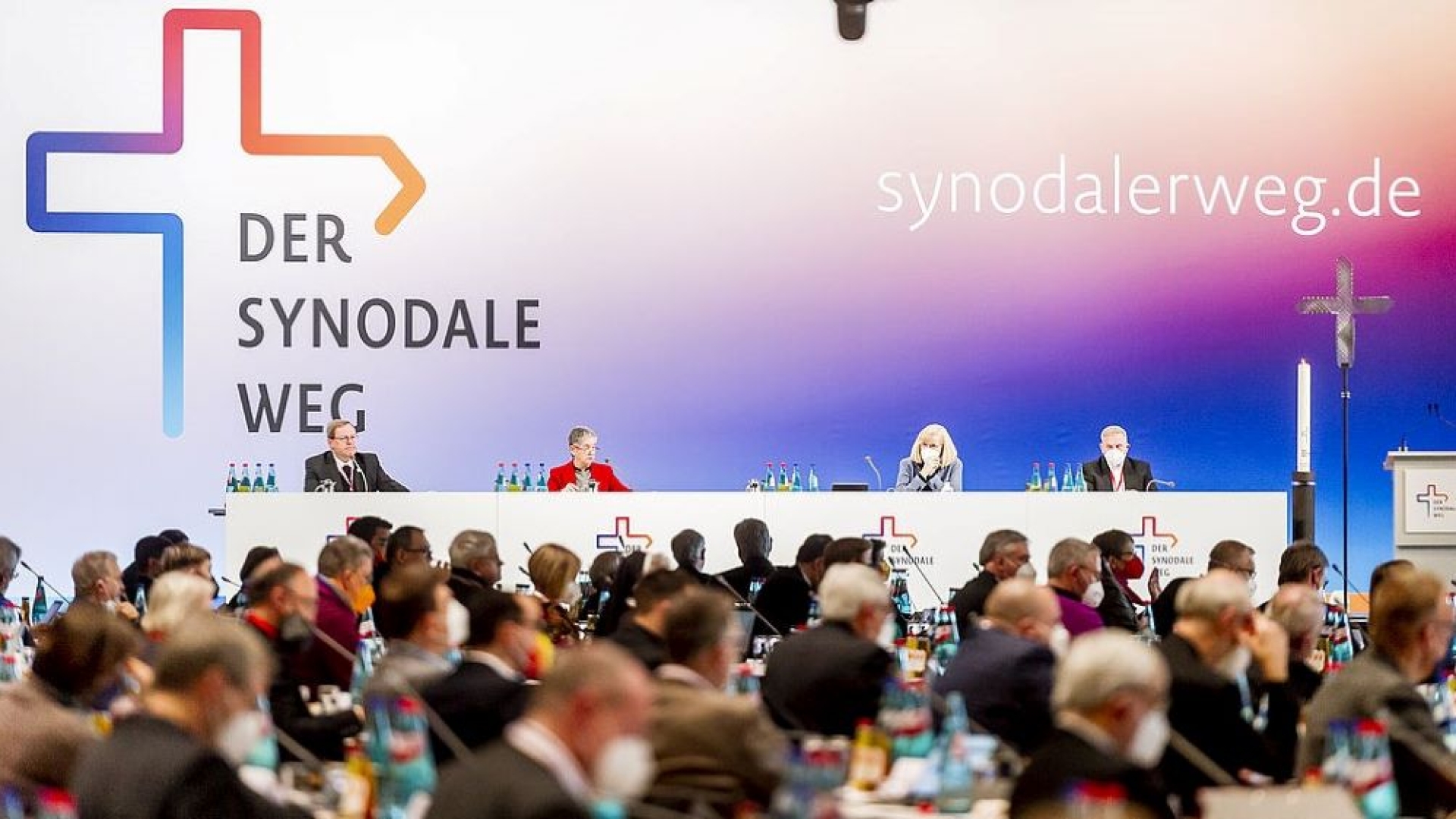Germany: The Synodal Path Contagion Infects the Whole Church

For Sandro Magister on his Settimo Cielo blog of June 27, 2022: “There is an ever more palpable risk that the agenda of Germany’s ‘synodal path’ will end up in that other synod of the universal Church which the pope convened in 2021…and which have its culminating session in Rome in October 2023.”
The Vaticanist notes the first effects of the synodal consultations at the local level: “as soon as the dioceses began to assess the state of mind of priests and faithful, it was clear right away what ingredients had gone into making the litany of requests. With the result that now the episcopal conferences, in taking stock of the decentralized first phase of the synod, find in their hands a duplicate of Germany’s ‘synodal path,’ invoked by their faithful as well.”
And he went on to observe countries largely contaminated by the German example: “France is a case in point. In mid-June, the French Episcopal Conference met in a special session precisely in order to put the finishing touch to a ‘Collection of synodal summaries’ produced in the various dioceses and then send it to Rome.”
“In voting on the document the episcopal conference did not approve its contents, but limited itself to verifying that these were in keeping with the requests of the thousands of priests and faithful interviewed.”
“But the requests sent to Rome include precisely the obsoletion of clerical celibacy, the ordination of women to the diaconate and the presbyterate, or at least, ‘as a first step,’ entrusting them with the homily at Mass, a radical reform of the liturgy and of its ‘now unacceptable’ language, the generalized admission to the sacraments of the divorced and remarried and homosexual couples.”
"In Ireland it is the same. In addition to the reports of the consultations in each diocese, the bishops made use of a large opinion poll among the faithful.”
“And it emerged that almost the totality of Irish Catholics want married priests and female priests, 85 percent want the obsoletion of any condemnation of homosexual acts, 70 percent want the laity as well to have decision-making power in the Church, and still others expelled from Mass the Old Testament readings ‘dripping with blood.’”
To all this, Sr. Nathalie Becquart, undersecretary in Rome of the synod on synodality, replies: “Nobody knows where this synod will end up. . ., but precisely for this reason one must be open to the ‘surprises of Holy Spirit.” – False ingenuity or real immaturity?
Sandro Magister notes: “It was in vain that not a few bishops and cardinals knocked at the door of the Dicastery for the Doctrine of the Faith, asking that Cardinal Hollerich’s [Luxembourg] most brazen theses be disavowed, especially those that overturn the doctrine on sexuality and homosexuality. The dicastery is keeping quiet and everyone is convinced that it is the pope who is imposing the gag.”
“The effect of the practical pass granted by the pope to the German “synodal path” is that there are more and more in the Church who feel authorized to behave accordingly.”
The Italian journalist cites these recent events: “In Germany there was a stir over the three hundred Franciscan friars who in mid-June elected as their provincial superior Markus Fuhrmann, who had made the news a few weeks earlier by publicly stating he was a homosexual as well as a fervent supporter of the most brazen innovations in the works with the ‘synodal path’ in Germany.”
“In Switzerland, in the diocese of Chur, Bishop Joseph Maria Bonnemain has forced priests and diocesan employees to sign a rainbow code [pro-LGBT] in which among other things, they pledge to ‘renounce generally negative evaluations on alleged non-biblical behavior in matters of sexual orientation.’”
And he concludes: “In short, the contagion of Germany’s ‘synodal path,’ unchecked by the pope, has now crossed the borders and threatens to influence the general synod on synodality itself.”
Related links
(Source : Settimo Cielo – trad. à partir de diakonos/DICI n°422 – FSSPX.Actualités)
Illustration : Zenit





